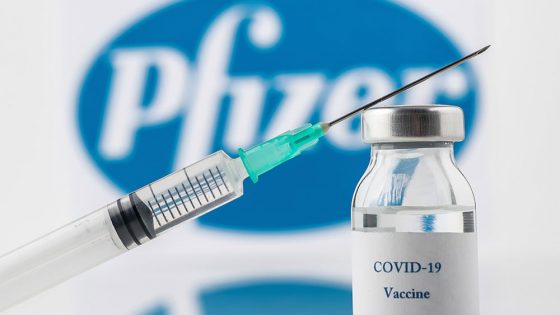The stated aim of the Medicines and Healthcare products Regulatory Agency (MHRA) is to ensure that all pharmaceuticals meet ‘extremely high’ standards of safety, effectiveness, and quality. Many, many doctors, pharmaceutical experts, and scientists, feel they are failing in their brief and one group, named Perseus, has compiled a report listing their failings.
Perseus say they have identified serious failures including that the MHRA only assesses medicines for risk/benefit, not absolute safety.
There were suggestions in Europe and the US that the UK vaccines were ‘rushed’, but Dame June Raine, head of the MHRA, said in a recent interview, ‘I had no self-doubt or 3am moments.’
Reports of serious adverse reactions relating to the jab, first administered in December 2020, begun to surface during trials. Three cases of transverse myelitis, a serious neurological disorder that causes paralysis, halted AstraZeneca’s trial in August 2020. Only 11,636 participants took part in it and as transverse myelitis is ‘relatively rare’, this should have been enough to send scientists back to the drawing board. But AZ, and latterly the MHRA, brushed these life-changing events off as nothing to do with the vaccine.
After the vaccine was rolled out, the MHRA’s response was just as lax. It was March 2021 when 18 European countries, including France, Germany, and Sweden, suspended Oxford/AstraZeneca’s Covid-19 vaccination before the MHRA took any action here. Three weeks later, on April 7, the MHRA and the Joint Committee on Vaccination (JCVI), decided that blood disorders (clots) caused by the vaccine affected younger people under 30, so stopped recommending the jab to them. That advice was revised in May to include anyone under 40. This was after many people’s health had been destroyed by the horrendous and potentially fatal blood clotting side-effect: vaccine-induced immune thrombotic thrombocytopenia (VITT). Symptoms include extremely low platelets, seizures, brain damage, blood clots in the lungs, and deep vein thrombosis (DVT).
The MHRA described this collateral damage as ‘extremely rare’, as though it was fine because only a few people died. By May 2021, 58 had died; each person a wife, husband, mother, father, sister or brother, but apparently not important enough to halt the vaccine rollout.
The Perseus report also says the MHRA failed to identify and address problems with manufacturing and quality control which has led to ‘hot lots’: batches that have higher than ‘normal’ adverse event rates. In August 2021 I reported on AstraZeneca’s batch number PV46671, which is responsible for at least two deaths and more than 100 serious adverse reactions.
The MHRA have seemingly ignored the long list of other serious adverse reactions, which run across pages and include blood clotting, heart inflammation, neurological conditions, aggressive cancers, menstrual disorders, stillbirths, and miscarriages. The report says these were not picked up in the original trials due to low sample sizes.
They are supposed to collect ‘post-marketing’ data on new drugs through their Yellow Card Scheme to identify problems, yet many doctors were unaware of the scheme, it did not appear in the literature given to vaccine recipients, and they advertised it only in November 2021, a year into the vaccine rollout. On top of that, they admit they receive reports of only approximately 10 per cent of all adverse drug reactions (ADRs). The current Yellow Card fatality figure associated with Covid jabs stands at nearly 2,500. The real figure could be 250,000 and the MHRA admit that almost 75 per cent of reactions are classified as serious. They have still taken no action despite the fact the average ADR reporting rate stands at 1 in 112 vaccinations, when the acceptable limit used to be 1 in a million.
These are serious numbers worthy of intense scrutiny, but the Perseus report highlights the fact the agency has no process for investigating Yellow Card reports, is short of manpower, and has less robust safety management systems and processes than other safety-critical sectors such as aviation, defence, nuclear and rail. These are people who literally hold our lives in their hands.
Perseus member Nick Hunt (the rest are anxious for their jobs and prefer to remain anonymous) is a professional engineer and was a senior civil servant in the Ministry of Defence (MoD). He did for the MoD what the MHRA is supposed to do for medicines: he was responsible for safety and effectiveness of ammunition for the Armed Forces.
His MHRA analogy is: ‘It’s like a nuclear regulator saying our nuclear power station is safe because it has fewer contaminated water leaks than other stations. The MHRA does not define the tolerable rate of fatal and serious side-effects of new medicines and is slow to act when problems have emerged.’
Pfizer, not AstraZeneca, were first to unleash their ‘life-saving vaccine’. After the AZ trials, it was extremely important to have in black and white the safety details. Afterall, the MHRA had granted emergency authorisation to Pfizer after deciding that their ‘warp speed’ vaccine was ‘safe and effective’.
I sent the MHRA a Freedom of Information (FoI) request two years agoin April 2021, asking to see the raw safety data for Pfizer’s Covid-19 vaccination. I expected peer-reviewed paperwork to be provided by return.
The response to my FoI was perplexing. The MHRA basically said that it was not in the public interest to release the information and to do so would compromise Pfizer’s commercial interests.This was a blatant prioritisation of Pfizer’s profits above our safety, and the safety of our young people and children. Their exact words were: ‘We have considered the public interest and cannot see any public interest argument that outweighs the commercial harm in providing information that can be used by competitors for their commercial advantage.’
There were many of us with similar concerns climbing up the side of the volcano, meeting at the rim. Mr Hunt was one. He said: ‘When we got to see the data, it showed negligible benefit for younger people. I submitted a FoI for a copy of the MHRA’s safety audit (an independent audit to ensure acceptable industry standards). I was shocked that there had not been one. I sent them further FoIs over the next two years and their answers just increased my concerns.’
After Mr Hunt shared his worries with other doctors and scientists, they pooled resources, and Perseus was born. Their damning report was released this week.
Perseus are not the only influential MHRA critics. Like the General Medical Council and Solicitors Regulation Authority, about which I wrote in Monday’s TCW, the MHRA has been criticised by peers.
In 2020, the Cumberlege Report, chaired by Baroness Julia Cumberlege, examined the response of the healthcare system in England to the harmful side effects of three medical interventions: oral hormone pregnancy tests that could cause birth defects, the epilepsy drug sodium valproate and pelvic mesh implants used to control incontinence in women. Her report said: ‘These interventions had resulted in a truly shocking degree of avoidable harm to patients over a period of decades.’
This was largely the fault of the MHRA which the Baroness described as ‘disjointed, siloed, unresponsive and defensive’. She added: ‘It has failed to listen to patients’ concerns and when, belatedly, it has decided to act it has too often moved glacially.’
Meanwhile, the number of injured is increasing and many are taking Rishi Sunak’s advice that they should sue. Medical negligence solicitor Peter Todd says he is currently receiving around 100 emails per day from those who fear they are vaccine injured.
UK CV Family is the largest Covid-19 vaccine injury support group in the UK with around 1,000 members who are either injured or bereaved. Around 50 new members join each month and they have contacted more than 200 MPs who represent vaccine-injured and bereaved constituents.
These are serious, serious failings and the Perseus report concludes: ‘A comprehensive independent inquiry must be launched into the MHRA’s regulatory processes and performance. The agency must undergo an overhaul of its governance and accountability processes to restore public trust.’
Sound advice, but let’s not hold our breath. It took decades for the truth about thalidomide to come out and none of the perpetrators ever faced justice.
Editor’s note Sally Beck’s first report on adverse reactions, Covid and a million coincidental reactions (ones disregarded by the MHRA though published via their Yellow Card system) in July 2021, marked the start of TCW’s ‘MHRA Yellow Card’ reporting. TCW has since reported, commented on and warned about the ever rising numbers of deaths and injury reported in each subsequent Yellow Card data release. This is in stark contrast with the main stream news outlets who have equally systematically continued to ignore this official source of vaccine associated death and injury information.
This article was originally published by The Conservative Woman and is republished here with permission






























